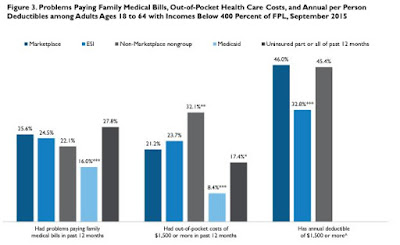Princess Health and Official praises needle exchanges and medication-assisted treatment for addiction: 'Treatment works. Recovery is possible.' . Princessiccia
addiction drug abuse drug treatment health care access heroin needle exchanges pregnancy public health |
| Scott Hesseltine |
"We are in the midst of a tragic public-health crisis and it's claiming the lives of our citizens at astronomical rates," he said, noting that more than 1,000 people die from drug overdoses in Kentucky each year and that the state has the highest rate of hepatitis C in the nation.
The interview on "Connections with Renee Shaw" was part of KET's "Inside Opioid Addiction" initiative, which is funded in part by a grant from the Foundation for a Healthy Kentucky. It aired in June.
Among other things, the bill allows needle exchanges to decrease the spread of infectious diseases, like hepatitis C and HIV, that are commonly spread by drug users sharing needles. They require both local approval and funding and have met with some resistance because many think they condone or perpetuate drug use.
Asked about that, Hesseltine said research shows that needle exchanges do what they are meant to do -- reduce the incidence of infectious disease among intravenous drug users.
He noted that Justice Secretary John Tilley, who was instrumental in passing the heroin bill as a state representative, said at a recent community forum in Corbin that research found that addicts who are involved in needle exchange programs are five times more likely to enter treatment.
"And we know treatment works and recovery is possible, so any avenue to slow the spread of disease and to help more people find the solution in recovery is a positive thing," he said.
Another point of contention among some lawmakers is that some of the state's needle-exchange programs don't adhere to a needle-for-needle exchange, which they say was the intent of the law,but instead provide as many needles as the addict needs for a week.
Hesseltine said the needs-based model decreases needle sharing and thus disease, so "Needs-based is more appropriate; it is more evidence based."
Hesseltine told Shaw that while working at Hazelden, he was part of an initiative that completely "altered the way we provided care." The new program, called COR-12, combines medication-assisted treatment with the 12-step abstinence model, which had been the only accepted recovery treatment program at Hazelden.
Hesseltine brought the new model with him to Seven Counties Services and said he likes to call it "medicated assisted recovery." He said "It has to be done appropriately so we are helping to stabilize someone from their biological symptoms of addiction so they can then engage in the recovery process."
Hesseltine told Shaw that addiction isn't curable, but is treatable.
"I would say it is a chronic disease that can be put into remission with structure, support, accountability and behavioral interventions," he said. "Curable? No, but like diabetes -- not curable, but certainly manageable."
Shaw asked if any addict is beyond reach. "Only someone who is not alive," Hesseltine replied. "Treatment works. Recovery is possible." He said that is why access to naloxone, the overdose-reversal drug branded as Narcan, is so important.
Asked what policy changes he would like to see, Hesseltine listed increased funding for drug treatment, "high level" models of care that shift addiction services to local communities, and repeal of the Medicaid rule that doesn't allow any reimbursement for mental-health and substance-use-disorder residential treatment facilities with more than 16 beds.
With treatment, Hesseltine said, "People can go from a pitiful and incomprehensible demoralization, a state where they have no hope to one of having hope, to being a productive member of society and to really regaining a place where they feel good about themselves and they are leading a life full of joy and freedom."


















